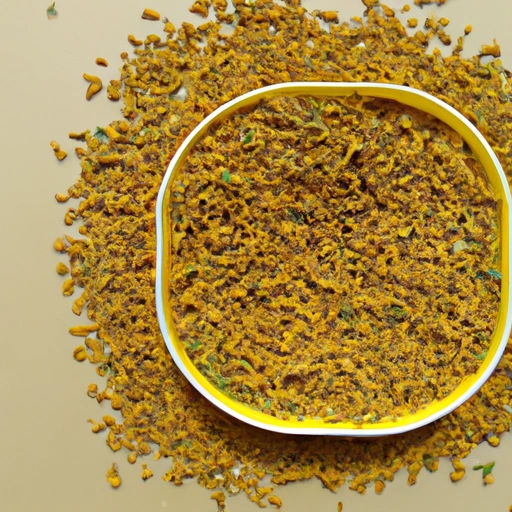Fenugreek
Description

Fenugreek, known scientifically as Trigonella foenum-graecum, is a herbaceous plant whose seeds are a staple spice in various cuisines around the world. The seeds have a distinctive maple-like aroma and a pungent, bitter taste that mellows out when cooked. Fenugreek leaves, fresh or dried, are also used as a herb in cooking.
Common uses
Fenugreek is commonly used to flavor dishes such as curries, chutneys, and spice mixes. It can be found in whole, powdered, or as sprouted seeds, and the leaves are used fresh or dried in a variety of culinary applications.
Nutritional value
Calories
A typical serving of fenugreek seeds (1 tablespoon, approximately 11 grams) contains about 35 calories.
Protein
The same serving size provides roughly 2.5 grams of protein.
Fat
Fenugreek seeds contain about 0.7 grams of fat per tablespoon.
Carbohydrates
Carbohydrates are present at approximately 6.4 grams per tablespoon of fenugreek seeds.
Vitamins
Fenugreek is a good source of vitamins, particularly vitamin C and several B vitamins.
Minerals
The seeds are rich in minerals such as iron, magnesium, and manganese.
Health benefits
Fenugreek has been traditionally used for its medicinal properties, including improving digestion, lowering blood sugar levels, and reducing cholesterol. It is also believed to have anti-inflammatory and appetite-suppressing effects.
Potential risks
While fenugreek is generally safe for most people, it can cause allergic reactions in some individuals. It may also interact with certain medications, particularly those for diabetes and blood clotting. Pregnant women should avoid high doses of fenugreek as it can affect uterine contractions.
Common recipes
It is a key ingredient in Indian spice blends like garam masala, in Ethiopian berbere mix, and is used to season Persian Ghormeh Sabzi. Fenugreek leaves are often found in Indian flatbreads known as 'methi paratha'.
Cooking methods
Fenugreek seeds are typically dry-roasted to enhance their aroma before grinding into powder. The leaves can be sautéed, stewed, or added to doughs and batters.
Pairing with other ingredients
Fenugreek pairs well with legumes, vegetables, grains, and meats, particularly in dishes with a robust flavor profile.
Summary
Fenugreek is a versatile herb whose seeds and leaves are prized in many global cuisines for their unique flavor and potential health benefits. It can be incorporated into a wide range of dishes, adding both nutritional value and a depth of flavor.